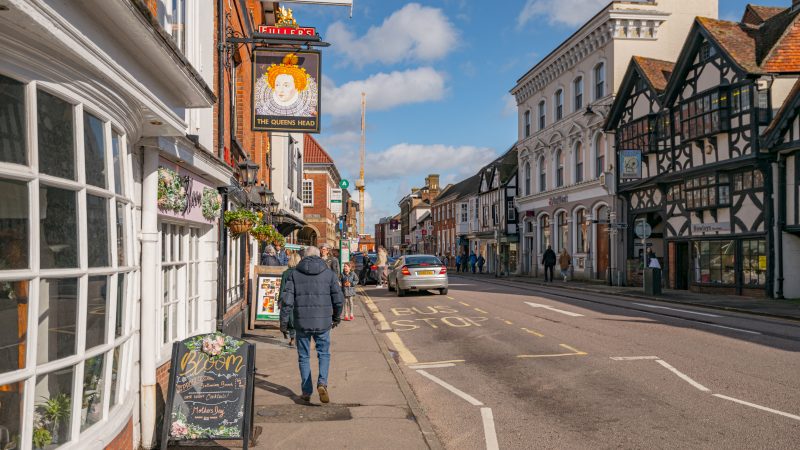
The Mid Bedfordshire by-election is the first time Labour has taken seriously a seat in the so-called ‘Blue Wall’, and against all conventional wisdom, it is a seat won. Attention will rightly turn to how progressive parties focus their efforts to best combat the Conservatives. However, it is also worth considering why it is possible for such strong support to exist for progressive parties, particularly Labour, in a constituency such as Mid Bedfordshire.
In trying to understand the gains made, I’m taken back to my time growing up in the south of England and to a more recent conversation with friends in a Sussex pub, deep in the Blue Wall. The conversation turned to politics, and two friends started expressing their disgust at former Prime Ministers Boris Johnson and Liz Truss. No surprises there. When I put the question of who they are backing at the next election to them, the answer was anyone but the Tories, followed by an expression of exasperation at the feeling of wasted votes in safe seats. What I did not hear is ‘I could never vote Labour’.
The South East is not as tied to Conservatism as many think
As someone who grew up in the South East, I tell this story as it says something about politics in the region and in other Blue Wall seats that I suspect most Londoners, and many progressives, miss. That this part of the country is nowhere near as ideologically tied to Conservatism, whether cultural or free market, as you might think. While growing up in Surrey, the reaction to left-wing politics and policies was never a vehement disagreement. It was always more a question of ‘well, that probably won’t work will it’, or at worst a patronising view about the idealism of the left. The kind of Conservatism my friends and family tended to back was that of the sceptic. No one I knew yearned for NHS privatisation or flat taxes.
Of course, all this came into view following Brexit. As the Conservative Party moved to the right culturally and to the left economically in order to make inroads in the ‘Red Wall’ there was always a likelihood that the ‘political realignment’ would come back to bite them. A consequence of all this, pollsters will tell you, is that support for political parties may be wide at times, but it is also a lot more shallow than it used to be. Large leads can move quickly.
Much has been made of Lib Dem gains in the Blue Wall. They are, of course, well placed to take advantage of the change in positioning of the Conservative Party. However, Labour has shown it can do so too, as Mid Bedfordshire has illustrated.
I spoke recently to Labour councillors in my local Waverley Borough in Surrey. Until the recent boundary changes, this was in Jeremy Hunt’s constituency, one of the bluest of Blue Wall areas. At council level, and going somewhat under the radar, they made huge progress in last spring’s local elections. Winning five borough and town seats and leaping into second place with more than 20% in three wards in Farnham. Even in seats where little campaigning effort was made, 8-5% are turning out for the party due to ‘spontaneous support’.
The region is open to backing progressive parties with the right pitch
Some of this, it is fair to say, is the consequence of a hugely unpopular Conservative Party. Yet it does go to illustrate my experience of the South East as somewhere that is open to supporting progressive parties, if they have the right pitch and put the work in. I’m certainly not the first to point this out. When talk of the political realignment was at its peak, David Gauke, former South West Hertfordshire MP, who was famously kicked out of the Conservative Party for his opposition to a hard Brexit, wrote for the New Statesman on ‘What Labour needs to do if it wants to demolish the Tories’ Blue Wall’.
I interviewed David for my podcast following the article. While there are policy prescriptions that he recommended to appeal to the Blue Wall – a focus on the green agenda, more vocal criticism of Brexit and sound public finances – the overarching takeaway I got from that conversation was that the message should be reassurance. This chimed with my experience, that what is needed is the ability to overcome the small-c conservative scepticism that I detect in my friends and family. Reassurance that Labour is serious and ready to govern is something Sir Keir Starmer and the shadow cabinet are doing very well at present.




More from LabourList
Government abandons plans to delay 30 local elections in England
‘The cost of living crisis is still Britain’s defining political challenge’
‘Nurses are finally getting the recognition they deserve’